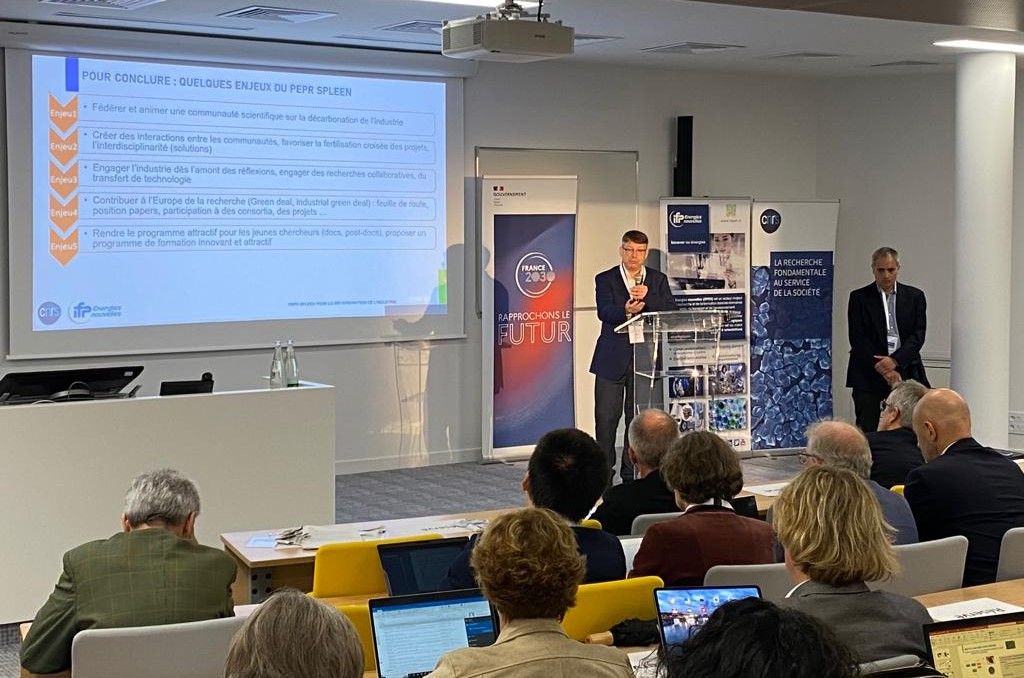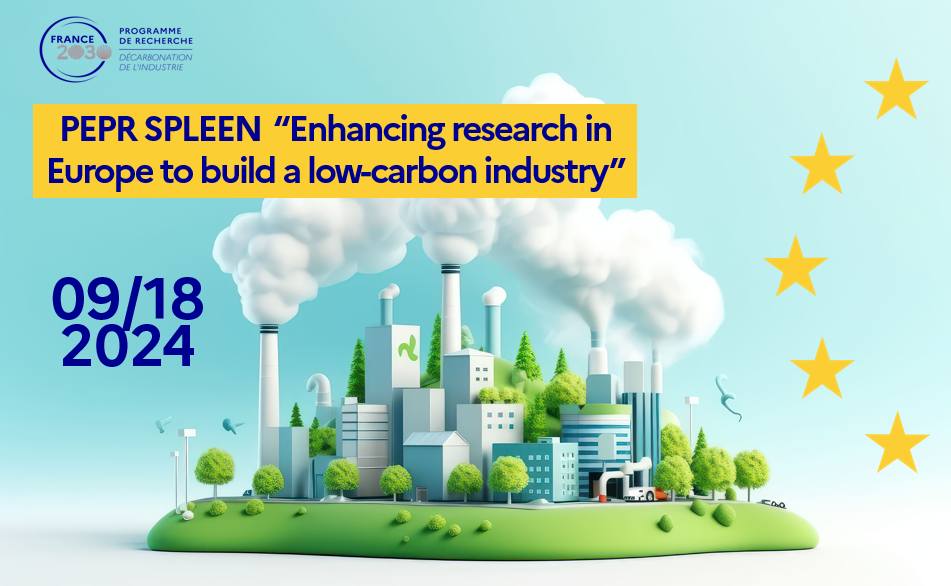Review of the PEPR SPLEEN launch day
The PEPR SPLEEN was officially launched on 30 June 2023 on the LyonTech-la Doua campus in Villeurbanne.

The day was marked by the mobilisation of scientific teams from some forty partners, the supervisory authorities and French industrialists involved in decarbonisation. It was an opportunity to present a summary of the issues involved in decarbonising industry and the research activities that will be implemented. This event was the first step in federating the scientific community around the decarbonisation of industry.
Co-piloted by the CNRS and IFPEN on behalf of the French government, and funded by France 2030, the aim of the Research Programme for the Decarbonisation of Industry is to support industrial companies in developing processes that emit less CO₂. This is a fundamental issue when you consider that industry is responsible for around 20% of emissions in France, with a similar proportion on a global scale, and that these emissions are difficult to reduce.
At stake is the restoration of French and European industrial sovereignty. Reducing the carbon footprint becomes a good lever for relocating key industries, which will then benefit from France’s relatively low-carbon energy mix.
The programme is part of the France 2030 national acceleration strategy “Decarbonising industry” and has a budget of €70 million for a period of 6.5 years.
The programme is divided into four complementary axis of research:
- Introducing low-carbon energy carriers (for heat production in particular)
- Intensifying processes : chemical reaction, catalytic conversion, capture and separation of CO2
- Treatment of residual CO2 by conversion into molecules of interest (chemistry), fuels or on-shore geological sequestration, an area in which it is essential to consider the conditions of socio-technical feasibility.
- Optimisation of decarbonation, starting with processes and extending to industrial sites (industrial ecology), based on the acquisition and real-time processing of data, in order to act on processes, in particular according to criteria based on life cycle analysis, an action that cuts across the whole programme.
More news Events


